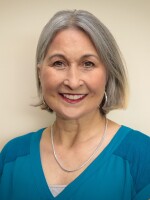Florida is one of only three states where county public health departments employ obstetricians for pregnant women.
It’s a legacy of the 1990s, when Florida’s infant mortality rate was one of the worst in the nation. But this safety net is eroding.
Health News Florida is exploring prenatal care in a series called “Pregnant and Poor.” Series reporter Abe Aboraya spoke with WJCT about how many health departments still offer care for pregnant women.
Health News Florida investigated what these changes mean to pregnant and poor women across Florida, and found that only 28 of Florida’s 67 counties offer prenatal care by health department employees. The state’s also been decreasing its roll in patient care overall.
Prenatal care has a huge impact on a child throughout life, said Linda Sutherland, Director of Orange County’s Healthy Start Coalition.
“There’s a direct correlation between being born low birth weight or not as healthy as your potential and low performing schools. Because really what happens in those zip codes is you start out behind,” she said.
There are a number of reasons for the changes including:
- Budget. Last year, the Florida Department of Health’s budget was cut by $155.8 million. And since 2011, the state’s health department ranks have decreased by 2,700 employees.
- Medicaid managed care. The state finalized its transition to managed care for Medicaid participants a year ago, and some of the private plans administering plans are paying county health department clinicians less for the services.
- DOH priorities. State leaders feel that public health departments supported by taxpayer dollars should only be providing care if there is absolutely no one else doing it. The focus instead is on population health, on things such as flu vaccines and preventing sexually transmitted disease.
Swannie Jett of the Seminole County Health Department said health departments really should only have doctors who see patients when there are no options.
“Once the community begins to stand up and provide some of those services, the health department can begin retracting their services,” he said.
The states says the majority of women who were getting care in county health departments already are being seen by private doctors since the state privatized Medicaid.
But the access is limited. In Orange County, for example, only about a third of doctors in private practice are willing to see Medicaid patients. Those who do, limit care to just a few obstetric patients a week.
Health News Florida found that the counties dropping prenatal care in the past two years saw dips in several key health statistics.
For example, the number of women getting in to see a doctor in the first trimester of pregnancy worsened 11 of the 12 counties that stopped offering prenatal care in the last two years. In rural Dixie County, when its county health department stopped offering prenatal care, the rate of women giving birth without ever seeing a doctor more than doubled, to the worst rate in Florida.
Abe Aboraya is a reporter for WMFE in Orlando. Health News Florida receives support from the Corporation for Public Broadcasting. Health News Florida’s “Pregnant and Poor” continues every day this week on WJCT 89.9 FM during Morning Edition at a 6:45 a.m. and 8:45 a.m.





